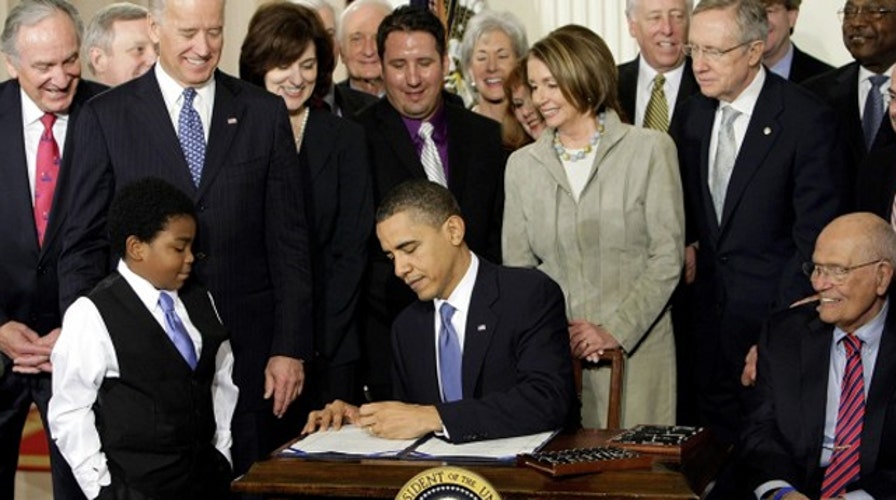The Obama administration delaying the start of the employer mandate part of ObamaCare this week is not the first snag in implementing the president’s signature health care law.
Other parts of the 2010 law have already been delayed or discarded, including a requirement that businesses fill out an IRS form for any purchases over a year exceeding $600. Congress repealed that in June 2011.
“It was extremely onerous (and) raised very little revenue,” says Douglas Holtz-Eakin, a former Congressional Budget Office director and chief economic policy adviser to Arizona Republican Sen. John McCain during his 2008 presidential campaign.
Amanda Austin, a public policy director for the National Federation of Independent Businesses, compared the IRS 1099 requirement to the employer mandate, which required many small and medium-sized businesses to provide employee health insurance or face paying penalties.
She argued both came with “tons” of “extremely complicated” paperwork and that the changes were in large part the result of business uproar.
“I think you heard a lot from businesses, really an outcry of why are we doing this,” she said about the IRS requirement. “And down the road obviously we got the provision repealed.”
The administration acknowledged as much in the surprise announcement Tuesday that the start of the employee mandate would be delayed from 2014, when much of the law is scheduled to take effect, to 2015.
“We have heard concerns about the complexity of the requirements and the need for more time to implement them effectively,” said Mark J. Mazur, a Treasury Department assistant secretary.
Holtz-Eakin and others also point out the administration also had to scrap the so-called CLASS Act section of ObamaCare that offered federally-subsidized insurance for long-term health care because the legislation stated the premiums had to cover the cost.
Holtz-Eakin called the plan “unworkable.”
Two other parts of the law, officially known as the Affordable Care Act, also have either been delayed or scuttled.
Earlier this year, the administration delayed until 2015 the start of a managed-care option inserted into ObamaCare by Washington Democratic Sen. Maria Cantwell, who then accused officials of dragging their feet to avoid lower cost competition.
“Our read of the statute is that you're supposed to do it in 2014 and not spend your time luring people into the exchange,” Cantwell said in April on Capitol Hill. “Is there a bias somewhere in the administration against lower-cost, managed-care delivery systems?”
The administration has also delayed the start of an ObamaCare provision known as SHOP – an insurance exchange that gives small business a range of choices.
Now those businesses have only one plan, contrary to Obama’s vow that the law would provide a range of options.
“I think the bottom line is that the law is very convoluted, very complicated and is bad policy,” said Katie Mahoney, the U.S. Chamber of Commerce’s executive director of health care policy.
Neil Trauntwein, an employee-benefits lawyer for the National Retail Federation, says the delays have at least allowed business leaders to return to Capitol Hill to discuss such issues as whether the cutoff for the employer mandate should less than 50 full-time employees and if a 30-hour week is the best definition of a full-time worker.





